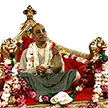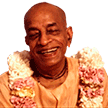Ability - an essential subject: Difference between revisions
(Created page with "Category:Essential Subjects <!----------------------- edit below this line -----------------------> <!------------------------ begin introduction text below --------------...") |
No edit summary |
||
| Line 2: | Line 2: | ||
<!----------------------- edit below this line -----------------------> | <!----------------------- edit below this line -----------------------> | ||
<!------------------------ begin introduction text below ------------------------> | <!------------------------ begin introduction text below ------------------------> | ||
Through observation, one sees that different living entities have various abilities due to natural talents and gifts, as well as how one's social status and physical and emotional make-up supports or defeats the ability to be happy. One may also wonder why someone is more able to achieve success than another when each has equal opportunity and resources. The secret to understanding this mystery of seemingly arbitrary distribution of ability and wealth starts with recognizing that Krishna, the Supreme Personality of Godhead, the greatest of all living beings, possesses all abilities unlimitedly. Whether obtained from pious activities from past lives or from the present, one's ability to create and do anything is based on the sanction of the Lord. He is the ability in man. This ability is awarded according to one's willingness to render service to the Lord, and the perfection of life is to simply serve Krishna to the best of one's ability. | |||
Srila Prabhupada's books, lectures, conversations and letters offer a comprehensive presentation of this essential subject as seen in the Vaniquotes '''[[Vaniquotes:Category:Ability|Ability]]''' category. An introduction from his books is given below in the following | Srila Prabhupada's books, lectures, conversations and letters offer a comprehensive presentation of this essential subject as seen in the Vaniquotes '''[[Vaniquotes:Category:Ability|Ability]]''' category. An introduction from his books is given below in the following 8 quotes. | ||
<!-------- end introduction text and don't touch next three lines ---------> | <!-------- end introduction text and don't touch next three lines ---------> | ||
---- | ---- | ||
== Quotes from Srila Prabhupada's books == | == Quotes from Srila Prabhupada's books == | ||
<!----------------- edit quote boxes below this line -----------------> | <!----------------- edit quote boxes below this line -----------------> | ||
{{VaniQuotebox| | {{VaniQuotebox|After welcoming the Lord (Krsna) and His companions (Narada and others), according to his (Srutadeva's) ability he brought fruits, incense, scented water, scented clay, tulasi leaves, kusa straw and lotus flowers|While Śrutadeva was welcoming Lord Kṛṣṇa and His associates, he simply forgot himself in transcendental joy. After welcoming the Lord and His companions, according to his ability he brought fruits, incense, scented water, scented clay, tulasī leaves, kuśa straw and lotus flowers. They were not costly items and could be secured very easily, but because they were offered with devotional love, Lord Kṛṣṇa and His associates accepted them gladly. '''(Kṛṣṇa Book, Chapter 86)'''}} | ||
{{VaniQuotebox| | {{VaniQuotebox|All Indians should help the Krsna consciousness movement in its progress, to the best of their ability. Then they will be considered real followers of Sri Caitanya Mahaprabhu|All Indians should help the Kṛṣṇa consciousness movement in its progress, to the best of their ability. Then they will be considered real followers of Śrī Caitanya Mahāprabhu. Unfortunately, even some so-called Vaiṣṇavas enviously refuse to cooperate with this movement but instead condemn it in so many ways. We are very sorry to say that these people try to find fault with us, being unnecessarily envious of our activities, although we are trying to the best of our ability to introduce the Kṛṣṇa consciousness movement directly into the countries of the yavanas and mlecchas. '''(Caitanya-caritāmṛta, Antya-līlā 3.51)'''}} | ||
{{VaniQuotebox| | {{VaniQuotebox|As long as King Indra lived in the water, wrapped in the stem of the lotus, Nahusa was equipped with the ability to rule the heavenly kingdom, due to his knowledge, austerity and mystic power|As long as King Indra lived in the water, wrapped in the stem of the lotus, Nahuṣa was equipped with the ability to rule the heavenly kingdom, due to his knowledge, austerity and mystic power. Nahuṣa, however, blinded and maddened by power and opulence, made undesirable proposals to Indra's wife with a desire to enjoy her. Thus Nahuṣa was cursed by a brāhmaṇa and later became a snake. '''(Śrīmad-Bhāgavatam 6.13.16)'''}} | ||
{{VaniQuotebox| | {{VaniQuotebox|Avidya (ignorance) similarly perverts the ability to relish the transcendentally palatable name, quality, form and pastimes of Krsna|The holy name, character, pastimes and activities of Kṛṣṇa are all transcendentally sweet like sugar candy. Although the tongue of one afflicted by the jaundice of avidyā (ignorance) cannot taste anything sweet, it is wonderful that simply by carefully chanting these sweet names every day, a natural relish awakens within his tongue, and his disease is gradually destroyed at the root. '''(Nectar of Instruction, Text 7)'''}} | ||
{{VaniQuotebox| | {{VaniQuotebox|Because all of us are bewildered by the illusory external energy of the Supreme Lord, we can see only this manifested cosmos according to our individual ability|Since neither Lord Śiva nor you nor I could ascertain the limits of spiritual happiness, how can other demigods know it? And because all of us are bewildered by the illusory external energy of the Supreme Lord, we can see only this manifested cosmos according to our individual ability. '''(Śrīmad-Bhāgavatam 2.6.37)'''}} | ||
{{VaniQuotebox| | {{VaniQuotebox|By practicing as a physician he (Murari Gupta) maintained his family and at the same time satisfied Lord Caitanya to the best of his ability. This is the ideal of householder life|As stated in Śrīmad-Bhāgavatam, everyone should try to satisfy the Supreme Personality of Godhead through the execution of his occupational duty. That is the perfection of life. This system is called daivī-varṇāśrama. Murāri Gupta was an ideal gṛhastha, for he was a great devotee of Lord Rāmacandra and Caitanya Mahāprabhu. By practicing as a physician he maintained his family and at the same time satisfied Lord Caitanya to the best of his ability. This is the ideal of householder life. '''(Caitanya-caritāmṛta, Ādi-līlā 10.50)'''}} | ||
{{VaniQuotebox| | {{VaniQuotebox|Daksa means "expert," and he was given this name because of his ability to beget many hundreds and thousands of children|Satī tried her best to mitigate the misunderstanding between the son-in-law and the father-in-law by coming to her father's house, even without an invitation, and at that time Dakṣa should have received her, forgetting all past misunderstandings. But he was so hardhearted that he was unworthy to be called an Āryan or brāhmaṇa. Thus his ill fame still continues. Dakṣa means "expert," and he was given this name because of his ability to beget many hundreds and thousands of children. '''(Śrīmad-Bhāgavatam 4.4.30)'''}} | ||
{{VaniQuotebox| | {{VaniQuotebox|Each and every mantra has its own spiritual significance. The spiritual master has to select a mantra for his disciple according to the disciple's ability to chant different mantras|There are different kinds of mantras for different kinds of devotees. There is the mantra known as the dvādaśākṣara mantra, composed of twelve syllables, and there is the mantra composed of eighteen syllables. Similarly, there are the Nārasiṁha mantra, the Rāma mantra, the Gopāla mantra and so on. Each and every mantra has its own spiritual significance. The spiritual master has to select a mantra for his disciple according to the disciple's ability to chant different mantras. '''(Caitanya-caritāmṛta, Madhya-līlā 24.330)'''}} | ||
<!----------------- edit quote boxes above this line -----------------> | <!----------------- edit quote boxes above this line -----------------> | ||
| Line 32: | Line 32: | ||
{{EsentialSubjectTotal}} | {{EsentialSubjectTotal}} | ||
<div style="float:left;"> | |||
{{EssentialSubjectnav}} | |||
</div> | |||
__NOTOC__ | __NOTOC__ | ||
__NOEDITSECTION__ | __NOEDITSECTION__ | ||
Latest revision as of 17:08, 21 November 2020
Through observation, one sees that different living entities have various abilities due to natural talents and gifts, as well as how one's social status and physical and emotional make-up supports or defeats the ability to be happy. One may also wonder why someone is more able to achieve success than another when each has equal opportunity and resources. The secret to understanding this mystery of seemingly arbitrary distribution of ability and wealth starts with recognizing that Krishna, the Supreme Personality of Godhead, the greatest of all living beings, possesses all abilities unlimitedly. Whether obtained from pious activities from past lives or from the present, one's ability to create and do anything is based on the sanction of the Lord. He is the ability in man. This ability is awarded according to one's willingness to render service to the Lord, and the perfection of life is to simply serve Krishna to the best of one's ability.
Srila Prabhupada's books, lectures, conversations and letters offer a comprehensive presentation of this essential subject as seen in the Vaniquotes Ability category. An introduction from his books is given below in the following 8 quotes.
Quotes from Srila Prabhupada's books
Ability - explore more within this category.
Vanipedia has now over 903 introductory articles compiled from Srila Prabhupada's books under the series titled Essential Subjects. All these articles can be seen in the Table of Content on the right side of this article and also here in this Umbrella Category. Browse through them to relish the breadth and depth of Srila Prabhupada's teachings - There is a subject for everyone.







